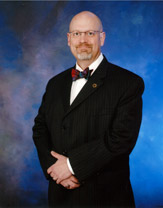 Below is a transcript from a C. H. Spurgeon sermon where he describes the covenant of redemption and then wonders what it would have been like to be to hear this covenant being made.
Below is a transcript from a C. H. Spurgeon sermon where he describes the covenant of redemption and then wonders what it would have been like to be to hear this covenant being made.
“Now, in this covenant of grace, we must first of all observe the high contracting parties between whom it was made. The covenant of grace was made before the foundation of the world between God the Father, and God the Son; or to put it in a yet more scriptural light, it was made mutually between the three divine Persons of the adorable Trinity.”
“I cannot tell you it in the glorious celestial tongue in which it was written: I am fain to bring it down to the speech which suiteth to the ear of flesh, and to the heart of the mortal. Thus, I say, run the covenant, in ones like these:
“I, the Most High Jehovah, do hereby give unto My only begotten and well-beloved Son, a people, countless beyond the number of stars, who shall be by Him washed from sin, by Him preserved, and kept, and led, and by Him, at last, presented before My throne, without spot, or wrinkle, or any such thing. I covenant by oath, and swear by Myself, because I can swear by no greater, that these whom I now give to Christ shall be for ever the objects of My eternal love. Them I will forgive through the merit of the blood. To these will I give a perfect righteousness; these will I adopt and make My sons and daughters, and these shall reign with Me through Christ eternally.”
Thus run that glorious side of the covenant. The Holy Spirit also, as one of the high contracting parties on this side of the covenant, gave His declaration, “I hereby covenant,” saith He, “that all whom the Father giveth to the Son, I will in due time quicken. I will show them their need of redemption; I will cut off from them all groundless hope, and destroy their refuges of lies. I will bring them to the blood of sprinkling; I will give them faith whereby this blood shall be applied to them, I will work in them every grace; I will keep their faith alive; I will cleanse them and drive out all depravity from them, and they shall be presented at last spotless and faultless.”
This was the one side of the covenant, which is at this very day being fulfilled and scrupulously kept. As for the other side of the covenant this was the part of it, engaged and covenanted by Christ. He thus declared, and covenanted with his Father:
“My Father, on my part I covenant that in the fullness of time I will become man. I will take upon myself the form and nature of the fallen race. I will live in their wretched world, and for My people I will keep the law perfectly. I will work out a spotless righteousness, which shall be acceptable to the demands of Thy just and holy law. In due time I will bear the sins of all My people. Thou shalt exact their debts on Me; the chastisement of their peace I will endure, and by My stripes they shall be healed. My Father, I covenant and promise that I will be obedient unto death, even the death of the cross. I will magnify Thy law, and make it honourable. I will suffer all they ought to have suffered. I will endure the curse of Thy law, and all the vials of Thy wrath shall be emptied and spent upon My head. I will then rise again; I will ascend into heaven; I will intercede for them at Thy right hand; and I will make Myself responsible for every one of them, that not one of those whom thou hast given me shall ever be lost, but I will bring all my sheep of whom, by My blood, thou hast constituted Me the Shepherd — I will bring every one safe to Thee at last.”

 “Traditions, everyone has them and those most blinded to them are those who do not believe they have any.” – Dr. James White
“Traditions, everyone has them and those most blinded to them are those who do not believe they have any.” – Dr. James White God Is Sovereign Over . . .
God Is Sovereign Over . . . “It seems odd, Commenting and Commentaries (London: Passmore & Alabaster, 1876), 1.
“It seems odd, Commenting and Commentaries (London: Passmore & Alabaster, 1876), 1. Phil’s reply: You have seriously misunderstood Sola Scriptura if you really imagine that it rules out human teachers or eliminates systematic theology. The Reformers (including Calvin) often cited the works of Augustine, Tertullian, Jerome, Cyprian, Ambrose, and others-ranging from the early church fathers through Aquinas. They didn’t follow any of them slavishly, of course, but they certainly took them seriously. Not one of the major Reformers would have tolerated the claim that because the Church Fathers were mere men they were therefore irrelevant or incapable of shedding any helpful light on tough theological questions.
Phil’s reply: You have seriously misunderstood Sola Scriptura if you really imagine that it rules out human teachers or eliminates systematic theology. The Reformers (including Calvin) often cited the works of Augustine, Tertullian, Jerome, Cyprian, Ambrose, and others-ranging from the early church fathers through Aquinas. They didn’t follow any of them slavishly, of course, but they certainly took them seriously. Not one of the major Reformers would have tolerated the claim that because the Church Fathers were mere men they were therefore irrelevant or incapable of shedding any helpful light on tough theological questions.  Transcript from an audio teaching by Dr. James White – Part 1
Transcript from an audio teaching by Dr. James White – Part 1 Perhaps you can relate to this – Divine election does indeed seem to be clearly taught in the Bible. Passages such as Romans 8 and 9, Ephesians 1 and 2, John 3, John 6, John 10, John 17, and many others, make a convincing case. However, certain verses, at least at first glance, seem to present a different picture.
Perhaps you can relate to this – Divine election does indeed seem to be clearly taught in the Bible. Passages such as Romans 8 and 9, Ephesians 1 and 2, John 3, John 6, John 10, John 17, and many others, make a convincing case. However, certain verses, at least at first glance, seem to present a different picture. “WHAT ABOUT” CONCEPTS:
“WHAT ABOUT” CONCEPTS: Dr. R. C. Sproul: In 1966, I was teaching a freshman college course of 250 students and assigned three 5–8 page papers that would be due over the course of the semester on October 1, November 1, and December 1.
Dr. R. C. Sproul: In 1966, I was teaching a freshman college course of 250 students and assigned three 5–8 page papers that would be due over the course of the semester on October 1, November 1, and December 1.